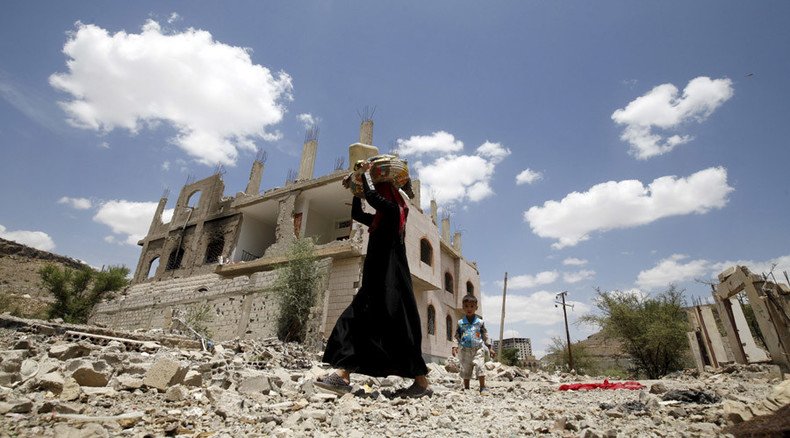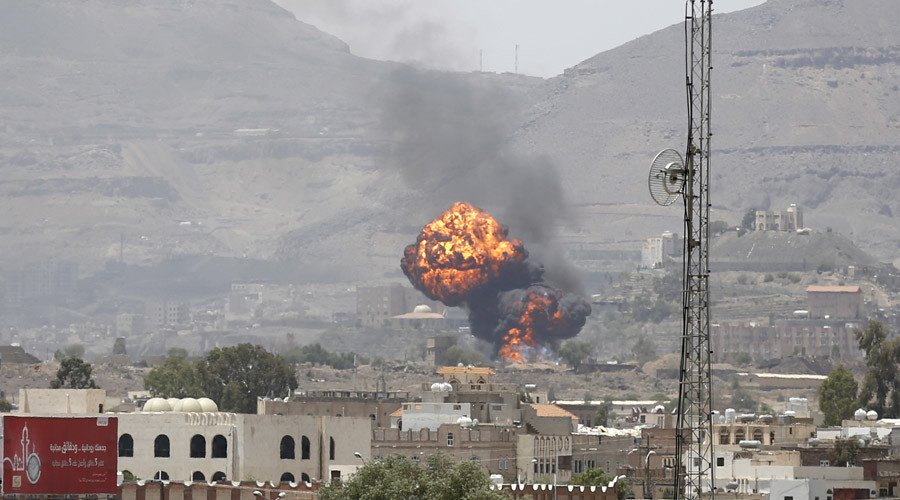‘US conducting proxy bombing campaign in Yemen’

Since Washington pulled out of Yemen, countries backed by the US like Saudi Arabia, UAE, Bahrain and even Egypt have been carrying out a massive bombing campaign and now a ground war in the country, Abayomi Azikiwe, editor of the Pan-African news wire told RT.
According to the UN, US drone strikes against Al-Qaeda in Yemen have killed 40 civilians from July 2014 to the end of June of this year. While Al-Qaeda was behind the deaths of 24 civilians.
READ MORE: UN condemns ‘virtual silence’ on civilian causalities in Yemeni conflict
RT:How much do these UN findings reveal inherent flaws in the use of drones in the fight against terrorism?
Abayomi Azikiwe: It is a series of developments in Yemen, but it is not limited to that country. We’re seeing the same pattern in other countries throughout the Middle East and Africa where these drone attacks wind up wiping out villages, neighborhoods and killing people who are not necessarily those who are targeted in the attacks. In Yemen it’s been a source of the crisis that has developed over the last year. The Obama administration had said several months ago that Yemen was a test case for the war on terrorism and that it had been largely successful there. They pulled out; however, in March, and since that time Saudi Arabia, United Arab Emirates, Bahrain and other countries, and even Egypt have served as a proxy military force for Washington in carrying out this massive bombing campaign, and now a ground war which is utilizing both Saudi as well as UAE troops in the south of Yemen.
RT:IS has reportedly carried out attacks in Yemen. Do you believe the US will use drones to get rid of them and can it work?

AA: They of course have utilized drones in the war against Islamic State as well. The problem with Yemen is that some of the so-called Islamist extremist organizations are in tactical alliance with the US. And this has been problematic over the last six months, because they in fact have empowered many groups have been fighting against Ansar Allah, the Houthis in South Yemen. And now the ground war is escalating – they are attempting to form enough forces to make an attack on the capital of Sana’a which the Ansar Allah has been in control of for over a year now.
RT:Yemen's now constantly being bombed by the Saudis and their allies. Is that working, or is it inflicting more damage on the nation?
AA: As far as halting the spread of the Ansar Allah movement which they have labeled as being an ally of the Islamic Republic of Iran, and of course in turning other people in Yemen against Iran and against the Ansar Allah movement, it has been an unmitigated failure. In fact there was an article just in Sunday’s New York Times on the front page which talked about the bombing of a water bottling factory in an area in Yemen. There was no evidence whatsoever that munitions were being produced at this facility. This was also reported by other networks and countries that have supported the Saudi GCC alliance in Yemen, for example, the US as well as Britain. So I think there is a realization even on the part of those who are supporting this war that is doing more to damage civilians than actually carrying out these strategic objectives which is to hold Teheran in check with regards to its influence in the Arabian Peninsula and in the Persian Gulf.
LISTEN MORE:
The statements, views and opinions expressed in this column are solely those of the author and do not necessarily represent those of RT.












